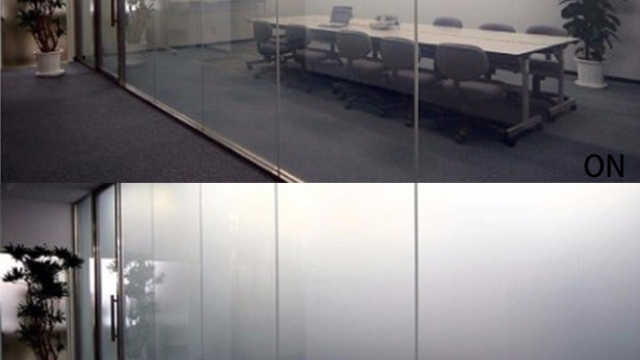Running a successful studio involves more than just artistic talent – it requires the mastering of studio and client management. From effectively managing projects to building strong and lasting relationships with clients, these skills are essential for thriving in the creative industry. In this guide, we will explore the key aspects of studio and client management, providing valuable insights and practical tips to help you elevate your business to new heights.
Studio management is the backbone of any successful creative enterprise. It encompasses various elements, including project planning, resource allocation, and workflow optimization. By implementing a robust CRM (Customer Relationship Management) system, you can efficiently keep track of clients, projects, and deadlines, ensuring nothing falls through the cracks. Additionally, an effective invoicing system is crucial for maintaining financial stability and fostering trust with clients. By streamlining the invoicing process, you can focus more on creating exceptional work and less on administrative tasks.
Equally important is client management. Building strong relationships with clients is vital for business growth and longevity. Clear communication and active listening are essential skills for understanding clients’ needs and expectations. By establishing a collaborative and transparent dialogue, you can align your creative vision with their objectives, resulting in a win-win situation. Consistently delivering exceptional work and exceeding client expectations will not only lead to repeat business but also help you build a strong reputation within your industry.
In the following sections, we will delve deeper into each aspect of studio and client management, providing practical advice and best practices to help you master this art. From project planning and team coordination to effective communication techniques and maintaining client satisfaction, this guide is your key to success in the ever-evolving world of creative entrepreneurship. So, let’s dive in and learn how to excel in studio and client management.
Understanding CRM and its Benefits
In the fast-paced world of studio and client management, having a robust Customer Relationship Management (CRM) system is crucial for success. A CRM system is a powerful tool that allows businesses to efficiently manage their relationships with clients and streamline various aspects of their operations. By centralizing and organizing customer data, a CRM system helps businesses enhance their understanding of clients, improve communication, and ultimately, boost productivity.
One of the key benefits of using a CRM system is its ability to provide a holistic view of each client. With a CRM, businesses can gather comprehensive information about clients, including their contact details, preferences, purchase history, and interactions with the company. This complete picture allows studio and client managers to tailor their approach to each client, providing personalized experiences and ensuring satisfaction. By understanding clients better, businesses can anticipate their needs, address concerns proactively, and build stronger, long-lasting relationships.

Moreover, a CRM system enables effective communication and collaboration among team members. Studio and client managers can easily track and manage client interactions, ensuring that everyone is on the same page. By recording all communication and activities related to each client, a CRM system helps businesses avoid confusion and duplication of efforts. This streamlined communication leads to improved efficiency, reduced errors, and ultimately, better client satisfaction.
In addition, a CRM system offers valuable insights through detailed reporting and analytics. These tools allow businesses to analyze data, track performance metrics, and identify trends or patterns. By gaining actionable insights, studio and client managers can make informed decisions, refine their strategies, and optimize their operations for maximum success. With customized reports and dashboards, a CRM system ensures that businesses stay focused on their goals, measure their progress, and adapt their approach as needed.
By harnessing the power of CRM, businesses can master the art of studio and client management, improving efficiency, fostering stronger relationships, and achieving long-term success. In the following sections, we will explore specific ways to leverage CRM for effective studio management and exceptional client satisfaction.
Streamlining Studio Management: Best Practices
In order to effectively manage a studio, implementing certain best practices is crucial. These practices can help optimize workflow, improve productivity, and ensure smooth operations. Here are three key tips to streamline studio management:
Utilize a CRM System:
A Customer Relationship Management (CRM) system is an essential tool for studio management. It allows you to maintain a comprehensive database of clients, track their preferences, and manage their interactions with your studio. By using a CRM system, you can easily access client information, schedule appointments, and send personalized communications. This not only helps in building strong client relationships but also enables efficient client management.Automate Invoicing Processes:
Managing invoices can be time-consuming and prone to errors if done manually. Automating the invoicing process can significantly reduce administrative burden and ensure accurate billing. By leveraging software or platforms specifically designed for studio management, you can generate invoices automatically, track payments, and send reminders when necessary. This streamlines financial processes and allows you to focus more on delivering exceptional services to your clients.Establish Effective Communication Channels:
Clear and efficient communication is vital for maintaining positive relationships with both clients and staff. Establishing effective communication channels within your studio is crucial to streamline operations. Whether it’s through email, instant messaging platforms, or project management tools, make sure there is a centralized platform where team members can collaborate, exchange updates, and delegate tasks. Additionally, maintaining open lines of communication with clients helps in managing their expectations, resolving issues promptly, and ensuring their satisfaction.
Implementing these best practices will help you streamline studio management, optimize productivity, and deliver exceptional service to your clients. By utilizing a CRM system, automating invoicing processes, and establishing effective communication channels, you can create an efficient and well-managed studio environment.
Effective Client Management Techniques
Building strong relationships with clients is essential for successful studio management. Implementing effective client management techniques can help ensure that projects run smoothly and clients are satisfied. Here are some strategies to consider:
Clear and Regular Communication: Regularly communicating with clients is crucial to keep them informed about the progress of their projects and address any concerns they may have. Utilize a CRM system to manage client communications, keeping track of conversations, emails, and important dates. Promptly respond to client inquiries and provide updates on project milestones to maintain transparency and build trust.
Studio ManagementActive Listening and Understanding: When working with clients, it is vital to actively listen to their needs and understand their objectives. Take the time to fully comprehend their vision, expectations, and specific requirements. This will allow you to tailor your services and deliverables accordingly, resulting in a more satisfying client experience.
Flexibility and Adaptability: Flexibility is key in client management. Every client is unique, and their needs may change throughout the course of a project. Be prepared to adapt your approach and accommodate reasonable client requests. Showing a willingness to be flexible demonstrates that you value their input and are committed to delivering the best possible outcome.
By implementing these effective client management techniques, you can foster strong relationships with your clients, enhance project efficiency, and increase overall satisfaction. The success of your studio management relies heavily on the satisfaction of your clients, so investing time and effort into effective client management is paramount for your studio’s success.



